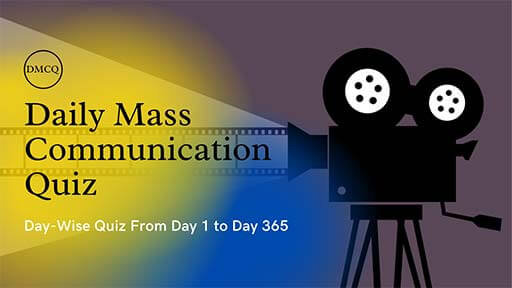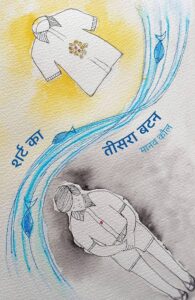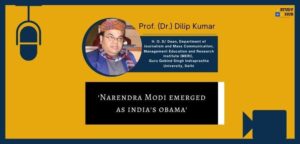Daily Mass Communication Quiz (DMCQ) boost your concepts through day wise solved quiz from the entire course of Journalism and Mass communication (JMC) with detail explanations.
Journalism and Mass Communication Objective Questions (JMC Quiz)
Q 1. …………..language will stop one from understanding the communication.
(A) Relevant
(B) Ambiguous
(C) Jargon
(D) Irrelevant
Correct Answer: (B) Ambiguous
Explanation: Ambiguous language describes speech that doesn’t have a singular meaning but represents different ideas, objects, or individuals..
Q 2. Which of the following statements is incorrect regarding the communication process?
(A) It is balanced
(B) It is complex
(C) It is never manageable
(D) None of these
Correct Answer: (D) None of these
Explanation: The process of communication refers to the transmission or passage of information or message from the sender through a selected channel to the receiver overcoming barriers that affect its pace.
Q 3. In the ‘AIDA’ model, I refers to
(A) Interest
(B) Influence
(C) Insurance
(D) Intelligence
Correct Answer: (A) Interest
Explanation: The AIDA model is an acronym – it stands for attention, interest, desire and action. It is a model used in marketing that describes the steps a customer goes through in the process of purchasing a product.
Q 4. The true intention of media is to make society
(A) Socially conscious
(B) Aware
(C) Educated
(D) All of these
Correct Answer: (A) Socially conscious
Explanation: Media is considered as “mirror” of the modern society, infect, it is the media which shapes our lives. Media play an important role in increasing of public awareness and collect the views, information and attitudes toward certain issue.
Q 5. Much of our knowledge of media violence comes from the study of-
(A) Families
(B) College students
(C) Children
(D) Violent offenders
Correct Answer: (C) Children
Explanation: Media violence poses a threat to public health inasmuch as it leads to an increase in real-world violence and aggression. Research shows that fictional television and film violence contribute to both a short-term and a long-term increase in aggression and violence in young viewers..
Q 6. Which is periodical publication?
(A) Comic strips
(B) Gags cartoons
(C) Editorial cartoons
(D) Newspapers
Correct Answer: (D) Newspapers
Explanation: Periodicals are magazines, scholarly journals, newspapers, and newsletters. They are publications that are published at regular intervals.
Q 7. ………….. role plays a great role in changing mindset of the people.
(A) Opinion leader
(B) Politician
(C) Government
(D) None of these
Correct Answer: (A) Opinion leader
Explanation: According to the multi-step flow theory, opinion leaders intervene between the “media’s direct message and the audience’s reaction to that message.” Opinion leaders tend to have the great effect on those they are most similar to—based on personality, interests, demographics, or socio-economic factors.
Q 8. Journalism is the base of ………….. and liberal media.
(A) Autonomous
(B) Restricted
(C) Prohibited
(D) None of these
Correct Answer: (A) Autonomous
Explanation: Journalism plays a vital role in the operation of all modern liberal democracies, functioning as the public watchdog, the fourth estate, or the conduit through which vital information flows to the citizenry.
Q 9. Who is a cub?
(A) An untrained reporter
(B) A short-story writer
(C) The assistant to the (chief) news editor
(D) None of the above
Correct Answer: (A) An untrained reporter
Explanation: A cub reporter is a young newspaper journalist who is still being trained.
Q 10. DAVP comes under the
(A) Ministry of Finance
(B) Ministry of I & B
(C) Ministry of External Affairs
(D) None of these
Correct Answer: (B) Ministry of I & B
Explanation: The Directorate of Advertising and Visual Publicity (DAVP), a media unit of the Ministry of Information and Broadcasting, is the nodal multi-media advertising agency of the Government.




















